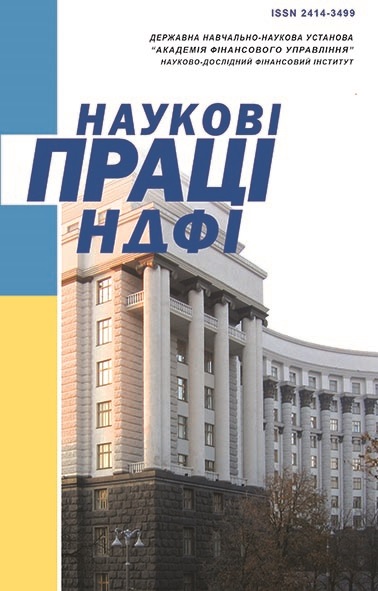
|
№ 3/2020
2. Kennedy, R., Lazer, D., King, G.,& Vespignani, A. (2014). The Parable of Google Flu: Traps in Big Data Analysis. Science, 343 (14), 1203–1205. doi.org/10.1126/science.1248506 3. Cerchiello, P., Giudici, P., & Nicola, G. (2016). Big data models of bank risk contagion. DEM Working Paper Series, 117, 2–16. 4. Nyman, R., Gregory, D., Kapadia, S., Ormerod, P., Tuckett, D., & Smith R. (2016). News and narratives in financial systems: Exploiting big data for systemic risk assessment. Retrieved from www.norges- www.norges-bank.no/contentassets/49b4dce839a7410b9a7f66578da8cf74/papers/smith.pdf. 5. Nymand-Andersen, P. (2016). Big data: The hunt for timely insights and decision certainty. Irving Fisher Committee on Central Bank Statistics Working Papers, 14. Retrieved from www.bis.org/ifc/publ/ifcwork14.pdf. 6. Board of the National Bank of Ukraine. (2018). On approval of the Regulations on the organization of the risk management system in banks of Ukraine and banking groups (Resolution No. 64, June 11). Retrieved from zakon.rada.gov.ua/laws/show/v0064500-18/ed20180611#n35 [in Ukrainian]. 7. Transparency International. (n. d.). Corruption Perceptions Index. Retrieved from www.transparency.org/. 8. World Bank. (n. d.). Ukraine. Doing Business. Retrieved from www.doingbusiness.org/en/data/exploreeconomies/ukraine. 9. World Economic Forum. (2018). Ukraine. Global Competitiveness Index 4.02018 edition. Retrieved from reports.weforum.org/global-competitiveness-report-2018/country-economy-profiles/#economy=UKR/. 10. Schwab, K. (Ed.). (2019). The Global Competitiveness Report 2019. World Economic Forum. 666 p. Retrieved from www3.weforum.org/docs/WEF_TheGlobalCompetitivenessReport2019.pdf. 11. Heritage Foundation. (n. d.). Economic Freedom Index. Retrieved from www.heritage.org/index/explore?view=by-region-country-year&u=637012211969077271. 12. Heritage Foundation. (n. d.). Country Rankings. Retrieved fromwww.heritage.org/index/ranking. 13. Heritage Foundation. (n. d.). The Index of Economic Freedom (Methodology). Retrieved from www.heritage.org/index/pdf/2019/book/methodology.pdf. 14. World Bank Data. (n. d.). Ukraine. Retrieved from data.worldbank.org/country/ukraine?view=chart. 15. Global Economy Database. (n. d.). Shadow economy in Europe. Retrieved from www.theglobaleconomy.com/rankings/shadow_economy/Europe/#Ukraine. 16. Ministry of Economic Development, Trade and Agriculture of Ukraine. (2020). Trends in the shadow economy in Ukraine. Retrieved from www.me.gov.ua/Documents/List?lang=uk-UA&id=e384c5a7-6533-4ab6-b56f-50e5243eb15a [in Ukrainian]. 17. UNCTSADstat. (2020). Foreign direct investment: Inward and outward flows and stock, annual. Retrieved from unctadstat.unctad.org/wds/TableViewer/tableView.aspx?ReportId=96740. 18. State Statistics Service of Ukraine. (n. d.). Retrieved from www.ukrstat.gov.ua/ [in Ukrainian]. |
|
|
|
|
THE ACADEMY OF FINANCIAL MANAGEMENT |

|
|
|



